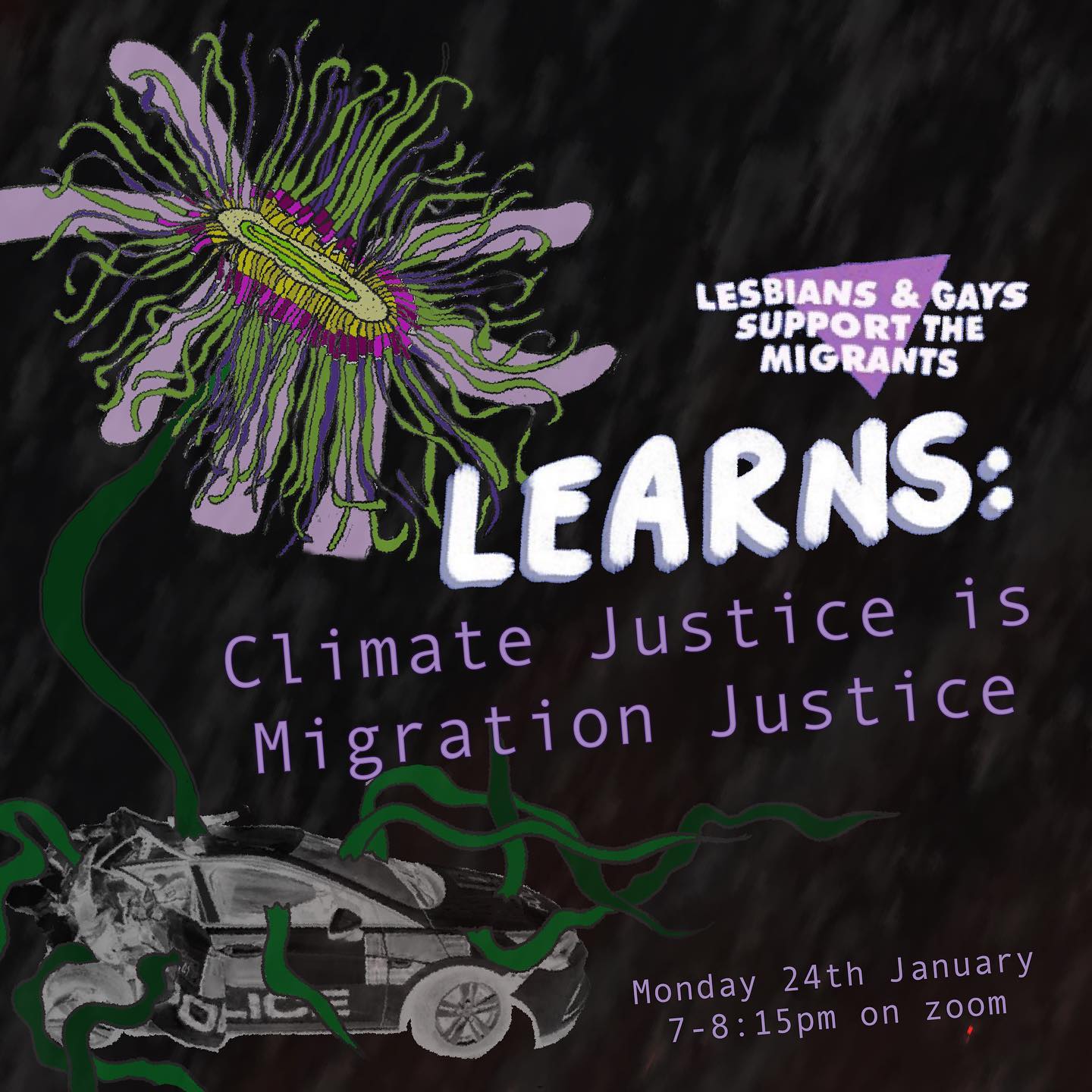
In the next instalment of our LGSM Learns series, we will focus on climate justice and migration.
The climate crisis is a defining challenge of our times - while it is ‘one’ storm, there are many different boats to ride it. For decades we have seen how the climate crisis is having a disproportionate impact on communities of color, in the so-called Global South, as well as here in the UK. Climate justice demands reparations for and solidarity with people on the front lines of impact and resistance to this crisis.
Climate Justice = Migrant Justice
Already millions of people in the so-called Global South are being forcibly displaced from their homes by climate related disasters that were not their making. Hostile border regimes (like the new Nationality and Borders Bill) will make it harder for already marginalized people to reach safety. Governments and people in the so-called Global North have a historic responsibility as the makers and enablers of the climate crisis to offer sanctuary, not violence. Especially in the face of increasing weaponization by the far right of the climate crisis as a reason to close borders - we must resist this hostility.
Join us in internationalist solidarity on January 24th to learn more about the connections between migration justice and climate justice.
The event will take place on Zoom. The link will be sent on the day. Make sure you register to receive it.
About LGSM Learns:
LGSMigrants are hosting an ongoing conversation series with different groups and organisations relating to migrant and refugee rights, activism and solidarity, to find out what is happening and how we, as groups or individuals, can act in solidarity.
Safer Spaces Agreement:
By attending our events, you agree to our Safer Spaces Agreement. The basic tenet is respect. LGSMigrants is committed to making our events as safe as possible, whilst recognising that it’s not possible to create spaces that are completely safe for everyone.
- Respect each other (our backgrounds, identities, ideas and bodies) and respect the spaces we create together and are part of.
- Everyone has an equal right to be heard and an equal responsibility to listen – be aware of how people might express themselves differently to you.
- However strongly you feel about a particular topic, abuse is never tolerated. Respect other people’s right to speak.
- Any behaviour that demeans, marginalises or dominates others, or perpetuates hierarchies, is not welcome.
- Identify your own privileges – the things that sometimes give you an easier ride than others – and try to be aware of them.
- Be aware of the range of people’s identities (gender, race, class) and avoid making generalisations or assumptions about people.
- Be aware that anyone in the space could be a survivor of a particular form of oppression, for example, violence or racism.
- If someone is feeling uncomfortable, do not hesitate to raise this.
- It is everyone’s responsibility to challenge prejudice and oppression, and if we ignore it we are complicit in it